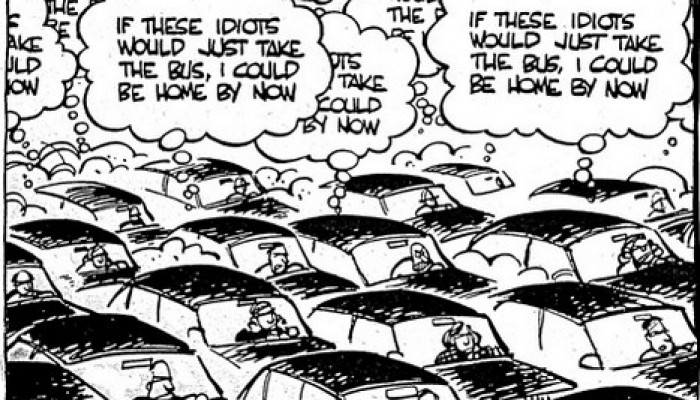
I have recently been confronted with the choice of buying a “new” car and this has proved to be a very tedious task with all the diversity of car that exists on the market today. However, one of my primary concerns was, of course, to find the least polluting car based on my usage (roughly 15000km/year).
Cars (or I should say motor vehicles) pollution is one of the major sources of air pollution (particulate matter, soot, NOx, …) in urban areas. These often cause, during both winter and summer seasons, long and prolonged exposition to ozone or PMs which can have significant effect on the health of urban population. Besides, vehicles are also one of the most important sources of greenhouse gases emissions (around 30%). Extensive research in various areas (air pollution and monitoring in urban areas, efficiency of motor vehicles, mobility and public transportation, urban planning,…) are thus being conducted to help reduce the exposition to dangerous pollutants and emissions of GHG.
Manufacturers have been more and more constrained by new regulations to decrease the pollutant emissions (with EURO6 norm now in the EU) and the increase the efficiency of motor vehicles. Governments around the world and more particularly in Europe, after the financial crisis of 2007/2008 have introduced new subsidies to incite people to buy new more energy efficient vehicles. One of the main issues here is that often the more efficient vehicles are not necessarily the less polluting vehicles. Policies have been based on GHG emissions from vehicle consumption without consideration of the full life cycle cost and analysis and also on other pollutants emissions.
Thus if we take for example an electric car, the GHG emissions (and also other pollutants) are pretty low or close to zero as there are none released by the car itself. But we also need to evaluate the emissions from the electricity power plant (most likely to be a centralized one based on either fossil fuel or nuclear energy). Furthermore if the life cycle cost of the battery in such cars, are taken into consideration, the picture is not so black and white anymore as it has been pointed out by numerous studies (ADEME – sorry for the French link!). Besides electric vehicle remain quite expensive and not really adapted to all usage.
If we compare both diesel and gasoline cars, then it becomes a bit more tedious. Diesel engines consumes generally less than gasoline one. However their PM emissions, for example, can be quite high and hence they need really efficient filters to get rid of these pollutants. More stringent regulations have forced manufacturers to improve significantly the quality of the air coming out of their diesel engines but still remain on average more polluting than gasoline cars. Countries, like France, that have strongly subsidized the use of diesel in the past, are now finding it quite difficult to phase out these types of cars. And besides they are more efficient and hence emits lets GHG.
Coming back to my choice of cars then… The choice for me in the end was then between the long term or short term benefits. Using a gasoline car or an electric car (in a country where the energy is coming from renewables!) would be more ecologically sound if we drive mostly in urban areas. However if you are thinking about the long term benefits (with climate change) then you should probably opt for a more efficient diesel car.
All of this, points out that research still need to be conducted and new innovative ideas are really needed (like Elon Musk’s battery, maybe?) so as to bridge the enormous gap between having an efficient car, the life cycle analysis and living in a pollution-free urban environment. But of course…, the best solution is to use public transport or bikes… well this is not always possible!




